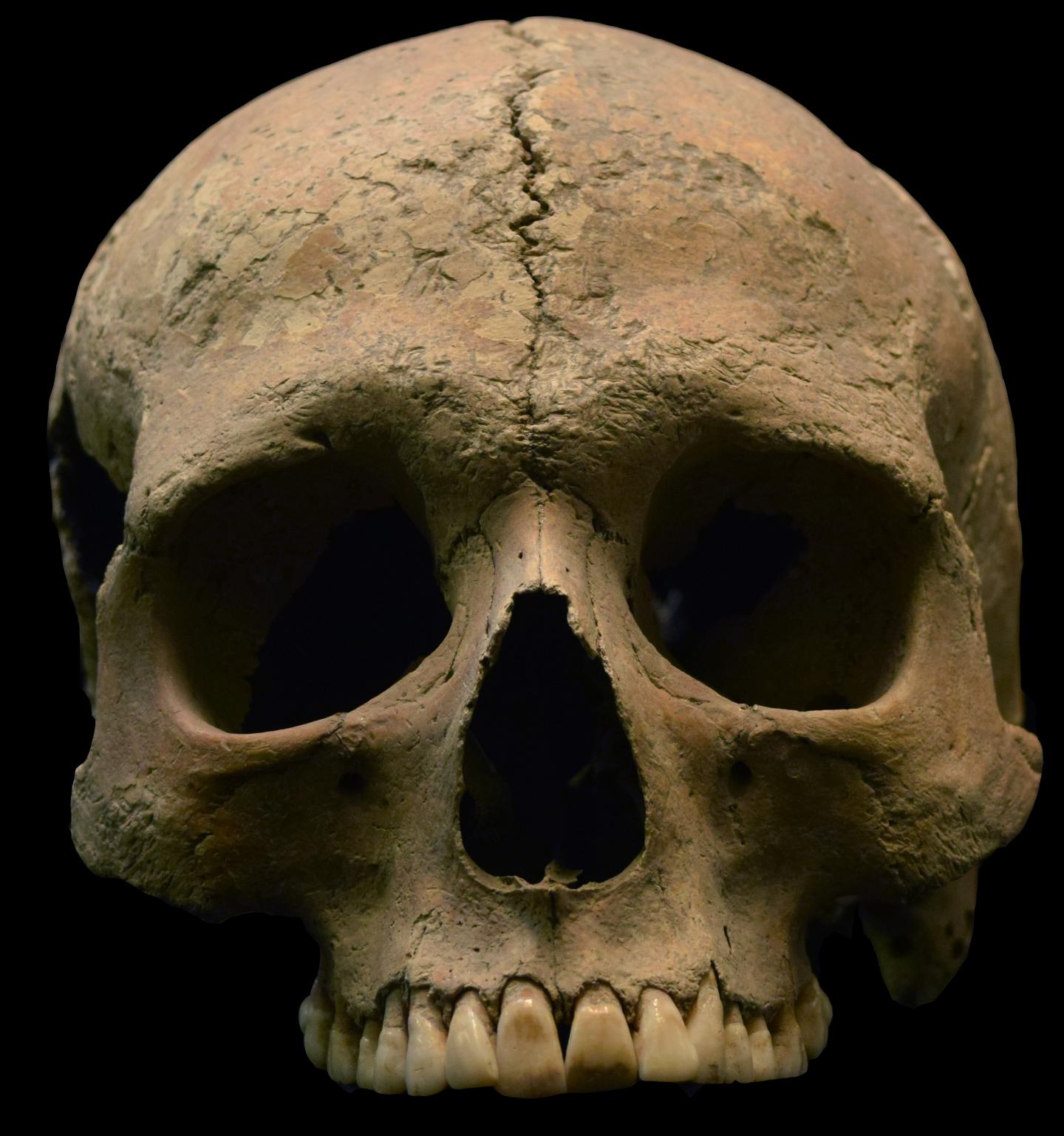Malaria ravaged the ancient Roman Empire 2,000 years agoSkeletons buried at the time of the Roman Empire bear evidence of malaria caused by plasmodium parasites.
International Business Times
By Léa Surugue December 5, 2016 17:00 GMT
 Here are the skeletal remains of an individual from Velia (Luca Bandioli, Pigorini Museum)
Here are the skeletal remains of an individual from Velia (Luca Bandioli, Pigorini Museum)Malaria was already devastating the Roman Empire, 2,000 years ago, researchers have discovered. The disease caused widespread deaths among communities spread out across the Italian peninsula just like it does today in Sub-Saharan Africa.
Malaria is one of the world's most chronic infectious diseases. Although its incidence has decreased by 37% since 2000, 214 million people still remain infected globally. The life-threatening illness is caused by plasmodium parasites transmitted to humans through the bites of infected female Anopheles mosquitoes.
While historical written sources allude to fevers resembling malaria killing people in the ancient Greece and Roman Empires, it was not clear whether plasmodium parasites were to blame, or the type of illnesses that struck these ancient civilisations, and how pervasive they were.
In the new research
published in the journal Current Biology, a team working at Mcmaster University's ancient DNA centre attempted to answer these questions.
The scientists have identified evidence of malaria in mitochondrial DNA collected from the teeth of skeletons found in three Italian cemeteries and dating back from the 1st to 3rd centuries.
Traces of Plasmodium falciparum
The researchers used teeth samples from 58 adults and 10 children for their analysis. The ancient remains were buried in three Italian cemeteries from the time of the Roman Empire. Two are located on the coast in Velia and Isola Sacra - dynamic port cities and trading centres. The third is located inland in Vagnari. Unlike the two other burial sites, this one was probably the cemetery of rural workers.
Small DNA fragments were extracted from dental pulp in the teeth. Within these fragments, the scientists were able to identify mitochondrial genomic evidence of the deadly malaria parasite Plasmodium falciparum - despite 2,000 years having passed since the the burial of the individuals studied in the research.
"Our data confirm that the species was likely Plasmodium falciparum, and that it affected people in different ecological and cultural environments. These results open up new questions to explore, particularly how widespread this parasite was, and what burden it placed upon communities in Imperial Roman Italy," said study author Stephanie Marciniak.
The team concluded that malaria was likely a significant historical pathogen just like it is today and that it was already associated with high mortality rates, no matter the community.
These findings could be useful for scientists to study the evolution of the parasite Plasmodium falciparum and the evolution of malaria over two millennia.
http://www.ibtimes.co.uk/malaria-ravaged-ancient-roman-empire-2000-years-ago-1594888
![]() New SMAC quizzes available.
New SMAC quizzes available.![]() Chess is back.
Chess is back.![]() New SMAC quizzes available.
New SMAC quizzes available.![]() Chess is back.
Chess is back.




















 Select your theme
Select your theme
